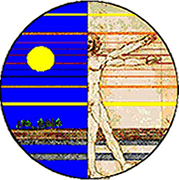

Workshop
Quantitative Multimedia Environmental Fate and Transport: Concepts and Applications of the Analytical Contaminant Transport Analysis System (ACTS):
The focus of this workshop will be on analysis of environmental pollution, the computation of fate and transport of pollutants, and quantifying exposure and potential dose. The workshop is organized around the theme of environmental pollution and human exposure to pollution. Specifically, attendees will be introduced to topics of analysis methods and the computational platform ACTS that is used for determining the fate and transport of substances in the environment that can potentially impact human health. Methods used to present the material will be lectures, problem assignments, computer lab assignments using computational software (provided by the instructors), and presentation of case studies and topics within environmental science and exposure assessment. Note: Software is in the public domain, developed for ATSDR by the Multimedia Environmental Simulations Laboratory (MESL) at Ga. Tech and is available for workshop attendees to download prior to workshop at www.
Objectives:
To introduce attendees to topics of, and analysis methods for, determining fate and transport of substances in the environment that can potentially have an impact on human health and when the ACTS and other analytical techniques can and cannot be applied for exposure assessment studies; to develop students’ ability to navigate through the ACTS software, conduct sample simulations, obtain results, printout results, and interpret results.
To have attendees understand the basic concepts of the ACTS software and to successfully use the ACTS software to model fate and transport in groundwater, surface water bodies, and air under deterministic and probabilistic conditions (using Monte Carlo simulation).
Workshop Instructors: Mustafa M. Aral (PhD, PE) and Morris L. Maslia (PE, DEE)
Workshop Duration: 1 Day (during October 13-15, 2008)
Download course registration material at (www)